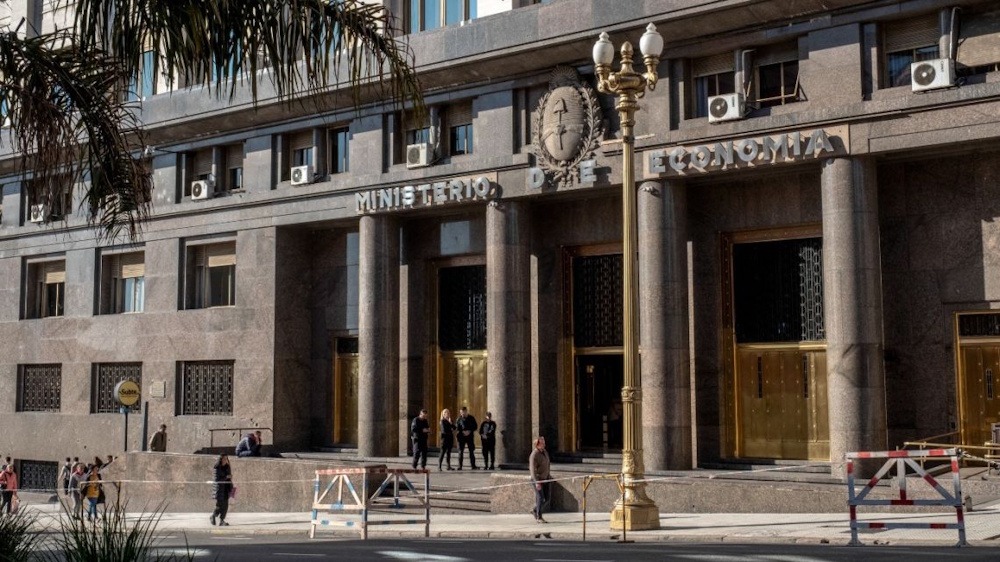Argentine bonds have reacted sharply to each headline that has appeared on trading screens over the past fortnight, resulting in a significant degree of volatility. Certain investors perceive local traders as the driving force behind numerous market movements, while foreign participants maintain a cautious stance. The nation’s dollar notes, having experienced their most significant rally in three years last week, nearly negated all gains within the subsequent days before staging a rebound once more. The consistent factor remained: information regarding potential US assistance for the administration of President Javier Milei. On Thursday, the volatility of the market was particularly pronounced, as bonds surged following US Treasury Secretary Scott Bessent’s reaffirmation of support for Argentina. However, this uptick was short-lived, as the market corrected downward when he specified that the assistance would not include new financial resources for the nation. The debt experienced a reversal in afternoon trading following reports that Economy Minister Luis Caputo and Central Bank Governor Santiago Bausili are set to travel to Washington on Friday to negotiate a US$20-billion swap line.
Following a market crash in August 2019, which was instigated by a significant electoral defeat for the former business-friendly president Mauricio Macri, local ownership of dollar bonds experienced a more than threefold increase, thereby validating investor apprehensions regarding a resurgence of leftist political ideologies. Alberto Fernández, his successor, initiated a debt restructuring process in the subsequent year. By June 2025, resident holders accounted for 31 percent of New York law debt, a significant increase from the 8.6 percent recorded in September 2020. “The volatility is associated with the domestic holder story,” stated Jared Lou. “Foreign investors faced significant losses, and many careers were adversely affected during the Macri administration.” A decline in the peso, approaching the boundary of its trading band, prompted the government to sell an estimated US$650 million in the spot market this week and reintroduce certain exchange controls to curb dollar demand. The peso experienced a decline of more than seven percent over the past five sessions, ultimately closing unchanged on Friday, with the government yet to reveal any official intervention data. The decline occurs as traders become more doubtful of Milei’s political influence in the lead-up to the midterm elections on October 26, especially following an unexpectedly significant loss in the regional elections in Buenos Aires Province in September. A decline in congressional backing may impede the libertarians’ efforts to reform Argentina’s economy.
While local investors might be retreating from the bond market, certain international firms are making assertive decisions to capitalize on the dip. Strategists noted in a report that the existing bond valuations present a “interesting entry point,” while acknowledging that volatility is likely to persist. David Austerweil, the deputy portfolio manager for emerging markets at VanEck in New York, increased his allocation to Argentina after the bonds experienced a significant decline following Milei’s loss in Buenos Aires Province. Despite acknowledging the recent negative price action, he remains confident that US Treasury assistance will ensure bond payments, particularly for the shorter end of the curve. “We think this is a good entry point,” he stated. “Assuming there is not a complete catastrophe in the midterms.” Not all foreign investors have been increasing their positions. Austerweil noted that certain funds were significantly overweight prior to the Buenos Aires Province election and are now compelled to reduce their positions. Currently, both domestic and international creditors are concentrating on the prospective trajectory of the exchange rate policy, particularly as Milei is anticipated to emphasize currency stability rather than reserve accumulation in the lead-up to the midterm elections.
The government managed to seize only a small portion of a transient increase in dollar supply, which was fueled by a tax incentive for agricultural exports that concluded this week. Consequently, the remainder was absorbed by Argentines who utilized the official market before selling at the elevated parallel rate. Walter Stoeppelwerth, remarked that foreign investors view the prospect of FX rate unification favorably. “The most significant concern that observers have is that the economic team will misallocate the limited funds available” prior to the elections on October 26, he stated. “All of this is part of the superstition surrounding elections.” The fundamental error for a governing party is permitting a devaluation that leads to inflation.

